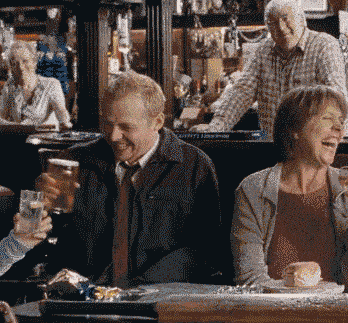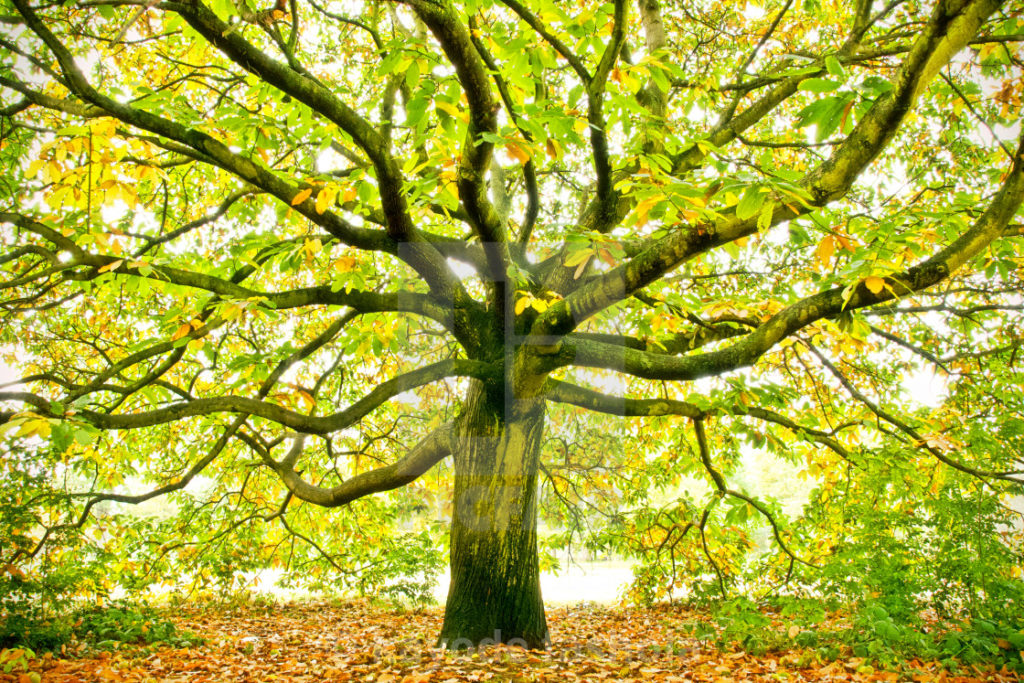People Like You
We believe we are a Self because we experience a continuity throughout our lives. ‘I started kindergarten when I was 5. I got my first job when I was 18. I got married when I was 32…’ etc. Believing we are a Self (ie ‘having an innate, unchanging soul’) is a simple way to understand ourselves. It is, however, possible to have a continuity without being a Self.
A seed grows into a sprout which grows into a sapling which grows into a tree. The seed doesn’t exist in the trunk of the tree or in the leaves. There is a continuity without there being a continuous TreeSelf. The tree goes onto make seeds which will one day become sprouts, then saplings, then trees… and they will make seeds… and on and on…
This is a continuity of Life throughout generations. We perceive the trees to be different trees. We perceive ourselves to be individuals… but we are simply continuations of Life.
If someone clings onto the idea that they are a Self, they will compare themselves with others, believing they are better, equal or less than them. They will start to think that there is a way this Self should be living, as if there is a Perfect Self that exists outside of their experiences. They may go on to think that there is a way the world should be, as if there is a Perfect World out there just waiting for us to discover it.
This utopian view of the Self and the World is a Modernist way of thinking and, as our one experiement in Modernism shows, it only leads to terrible things. If you believe you have a Perfect Self that is being prevented by others in society from existing or living freely, this is exactly the same mindset that was prevalent at the start of the 20th century. Look how that the mass delusion of a Perfect Self and a Perfect World turned out.
The post-war era ushered in a new way of thinking about ‘being human’ – Postmodernism. The horrors of conformism and exclusion in the persuit of a Perfect Self in a Perfect World were fresh in minds of these new thinkers. Postmodern theorists ended up thinking that by defining anything at all, one necessarily had to exclude other things. ‘Exclusion’ ultimately ends in mass destruction, and well, yea, that wasn’t exactly good. Postmodernism ushered in distrust in the idea of countries, governments, religions and institutions. It became increasingly difficult to work out how to define and describe ourselves.
Postmodern thought claimed that we cannot belong to any group – defining a group requires exclusion of those who don’t belong in that group- therefore, we can ONLY be nebulous, unique individuals. This inability to idealise and to identify with any class of people, left us separated from ourselves. Who are we if we can’t be part of a nation, a religion, a social class? Taken to its end result, the postmodern idea of “the self” is fragmented and depthless. There is no ‘essence’ of Us.
This is not, however, how we feel. We feel like there is an Us in there somewhere.
The postmodern era saw a wave of people seeking out personal and “spiritual” – but non-traditionally religious – salvation in new age beliefs, high control groups and new religious movements (aka cults). People who felt no connection with their society or even with themselves were told that they were special, that their Authentic Self could be found again and often that their ultimate salvation would not be based in this (terrible, indefinable, hyperrealistic) world, but instead in another realm.
These groups variously told us that they alone could ease our personal fears, insecurities and psychological problems. They alone could help us become more successful and productive at work. They preached against traditional belief, instead pushing the idea that ‘knowledge’, ‘technology’ or ‘science’ would provide their followers ultimate emancipation. They used unique words and phrases, they had their own rituals and indoctrinations, all of which are intended to get one closer to some kind of ‘deeper meaning’. Sometimes this salvation would come from aliens arriving here from another world or us going to their world; sometimes it would come by ascending to or connecting to a Heaven which often existed on ‘another level’ or in ‘another dimension’; sometimes it would involve the supernatural, angels or ‘the divine’.
This developed the idea that there is ‘hidden knowledge’ that those in power have suppressed, preventing us all from finding our ‘authentic selves’. This seeped out of the new age/new religious movements into other areas such as therapy, counselling and ‘alternative’ medicine, and ultimately into culture at large.
The 20th century ended with things like the X-Files, alien autopsies, multiple personality disorder, homeopathy, Andrew Fucking Wakefield, Heaven’s Gate, Scientology, Al-Quaeda…
That was all bullshit, too.
In the 21st century, we are now at the beginning of the Metamodern era, which is- very simplistically- an oscillation between modern and postmodern sensibilities. We have been steeped in postmodern separation, cynicism and irony for so long that connection, trust and earnestness seem like desirable novelties… We are BOTH postmodernist and modernist thinkers and NEITHER postmodernist nor modernist thinkers. We can understand that the scientific method was created by humans (postmodernism) AND believe in scientific knowledge (modernism). We can know that femininity was culturally constructed (postmodernism) AND know that mammals have two distinct reproductive sexes, male and female (modernism). We believe we can improve ourselves and our environment using logic, knowledge and rationality AND we need to feel- really feel- genuine emotions.
Throw Covid into the mix and right now in 2022 we are always physically alone, but mentally- digitally- always connected, often very deeply, to hundreds or thousands of others. The human sense of ‘separation’, however, has not been alleviated, it has just taken on a new form that oscillates between the social and the personal.
We are now seeing the rise of (modernist) social mass movements based entirely around (postmodern) personal identity. People are joining together to affect real world norms, rules and laws with the aim of changing society based on idealised, internet-facilitated visions of ‘the Authentic Self within the Perfect World’. These ideas have been forged in non-physical, online spaces and are often based on subjective experience and feelings. Think the Proud Boys, Brexit, Men’s Rights Activism, but also think Black Lives Matter, MeToo, transgender ideology.
If we experience distress, struggle or pain in the real world, we embody it and use it as a new kind of ‘essence’ in order to label ourselves online. We have invented a HUGE number of labels that have atomised everything from our perception of pain or our energy levels (eg “spoonies”) to our preferred dating style (eg “demiromantic”) to our unique learning or socialising style (eg “neurodivergent”) to our perception of our place within a set of social norms (eg “non-binary”). We are unique and yet we want to connect with others who consider themselves to be “unique” in exactly the same way we are. We connect with others who have chosen the same label and find relief from the loneliness. And we use those online connections to attempt to change the real world so that we can hopefully find relief from the distress, struggle and pain we feel there. The irony being that if we find relief in real life, the labels we use will no longer suit us and we will lose our community online… Retain the labels, retain the connection, retain the pain…
Sometimes we notice friends and family falling into a group when they start to add their ‘labels’ to their social media bios. Maybe we wonder how they can perceive themselves as something so different from how we have always perceived them. Maybe we start to feel afraid to say what we think about something because we’ve seen how friends and family respond to others who have said those things. Maybe friends and family start to speak about ‘people like you’ in a way that concerns or angers you. And with that – without your say so, without your choice – they have added you to a group (‘people like you’)… and now you are part of this, too.
What do you do?
Yea, sure, you could just pretend that it isn’t happening (like so many men do about the attacks on women’s rights) or you could stay quiet, keep your head down and hope it all blows over…
Or you could see it for what it is and try to find a new way through it all.
There is an idea I learned years ago from a Buddhist monk about how we each live in two universes. We are the centre of one of those universes – this is our personal perception of our experiences. In this universe, we are the star and everyone else is a bit part player. The other universe we live in is the one external to ourselves, the one we share with everyone else, aka the real universe. The biggest mistake we make is confusing our personal universe for the real one. Just because you believe something very deeply, doesn’t mean that it is ‘true’ or real to anyone other than you. Another mistake we make is forgetting that we are just a bit part player in everyone else’s private universe.
If you are fighting for an ideology, a label or an identity that you believe is your ‘Authentic Self’, you are fighting against yourself in your own mind. If you find yourself thinking ‘people who don’t think X’ shouldn’t exist in a Perfect World, you are fighting against yourself in your own mind… and are heading to a very bad place indeed.
The only things worth fighting for are the things in the universe we all share together.
Reality. It’s the only thing that will be left when we are gone.



